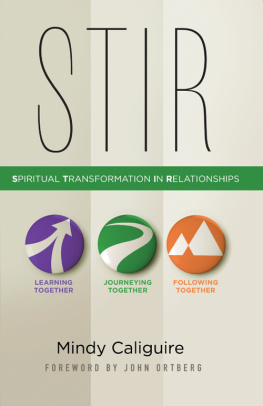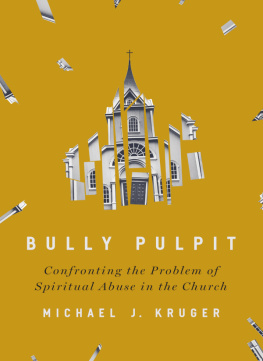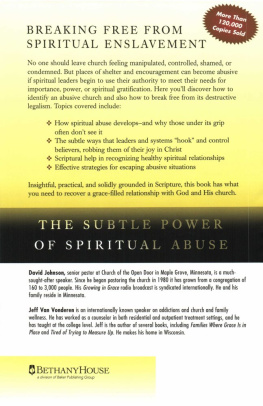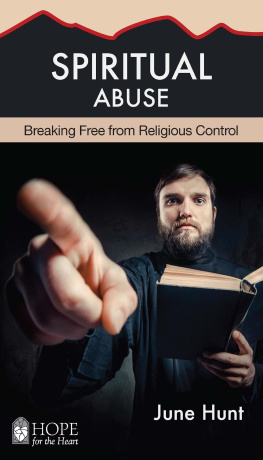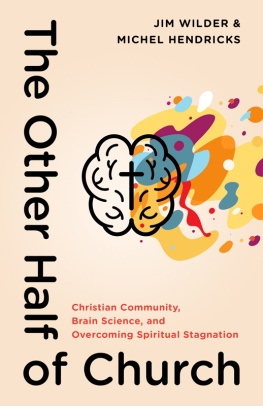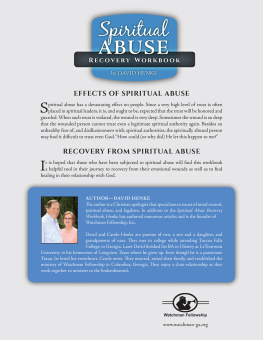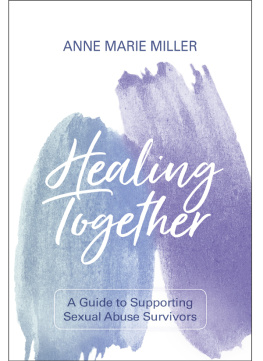S piritual abuse, the misuse of spiritual authority to maltreat followers in the Christian church, is a complex issue. This study focused on how people processed their grief after experiencing spiritual abuse in their local church and how they rediscovered spiritual harmony.
The goal of this research was not to open old wounds, but to allow those who healed over time the opportunity to give voice to their previous suffering as well as to gain understanding as to how they recovered. The Christian community needs to recognize that these distressing situations exist. We need to grieve and heal together.
This book aims to help people who have been wounded by spiritual abuse. It can also function as a resource for pastors, denominational leaders, seminary and Bible college instructors, church consultants, and Christians in general to better understand, and thus prevent, this complex issue.
Whats Going On?
E very year dedicated Christians leave churches because of spiritual maltreatment at the hands of clergy. What factors cause dedicated believers in Christ, who have been active in serving in their local church for a number of years, to be spiritually abused, pushed outside the church, and reduced to an exiting statistic? This book is based on the doctoral research of Barb Orlowski who traced the process of spiritual recovery among church congregants who were compelled to make the decision to leave their home church.
Spiritual abuse is a complex issue and the devastating emotional toll upon exiting active church attendants beckons consideration. The concept of spiritual abuse may not be a familiar one to church leaders. Many issues demand the time and energy of pastoral and other church leaders; therefore, spiritual abuse and the recovery of abused believers may remain at the periphery of their attention and interest. This book aims to bring spiritual abuse to the center of clergys attention, invites them to consider this very real dysfunction in the Church today, and asks them to decide whether they and their church community can be part of the solution to this malady, rather than part of the problem. Participants in this study describe how they went from a point of emotional woundedness to a place of spiritual recovery. Learning what factors helped in their recovery will aid church ministry leaders in how they and their congregations can minister more effectively in this area of need in the Church.
The following excerpt, Shattered Illusions, is from a popular Internet website. Along with this website hosts description of spiritual abuse are selected comments by those who replied to the post. This shows an immediate and parallel response to the hosts understanding of the issue by others.
A large number of people who leave churches have experienced spiritual abuse. One of the reasons I want to talk about this is because it is a reality in the lives of many who are a part of the emerging church conversation. Spiritual abuse is trauma. The three characteristics of trauma are: 1. An external causeSomeone does it to you. 2. ViolationYou are violated by an unwelcome intrusion. 3. Loss of controlIt is unexpected and beyond your control. The result is a shattering of the basic assumptions the person held about their world. For me, the shattering was the realization that things within the church are not always as they should be, and truth and justice do not always prevail. Evil within the world doesnt surprise me. Mistakes and misunderstandings in relationships dont shock me. I have always believed that conflicts between Christians can be worked through when both parties submit their will to God. Intentional, malicious action against me by a church leader blew me away. The unwillingness of others involved to challenge the leaders actions, but instead look the other way in denial, preserving their positions, shattered my trust in church leadership.
The tendency of those who have not experienced spiritual abuse is to minimize the experience. Honestly, it is something you do not truly understand unless you have experienced it. Those who leave churches are often portrayed as overly sensitive, embittered, and difficult to get along with. While they may be reactionary immediately following their abuse, most recover and grow beyond that. Their experience is a contributing factor in forming different expectations of what the church should be.
Selected excerpts from online comments about this article:
Like yourself, I have experienced this, and it was a life-altering event. The loneliness, the second-guessing, the longing to be vindicated, resisting the urge to strike out, etc.
My first pastorate ended in a way that is eerily similar to what you have described here. The abuse, the lies, the manipulations, the cowardice of the other leaders who looked the other way, and the gullibility of the congregation that bought the whole spin-doctoringhook, line and sinker. I was a total mess for a year at least. The biggest casualty was my trust in other leaders and mature Christians.... Its far too prevalent. But God is merciful and gracious, and brings healing to those who have been through these dark waters. I can also bear witness to His restorative power in my life.
Ive written about this too.... Its a story of my personal path to what, where, and why I am today. Painful curves, but still, God knows how to make good things happen out of the bad, too.
Your post has begun a powerful conversation here. Thanks for being willing to open yourself up. I know from personal experience that theres fear in doing that, even among friends, for a long time. I was hurt by manipulative lay leaders. Its been ten yearsand it took most of those ten years to get past it. We settled in a church where God clearly led us for healing. They are loving people, who cared for us, and mostly didnt hurt us.
A friend of mine points out that there is a culture of silence in many churches to not confront hypocrisy or injustice in leadership. When someone does speak out, [they are] tarred and feathered and characterized as rebellious or bitter. It is good that you are bringing this out into the open Grace.
This selected account and the responses given on this website provide a snapshot of this multifaceted and widespread problem in the Church today and illustrate the nature of the issue. It also shows that recovery and spiritual restoration are possible.
Church Issue and Ministry Problem
People who experience spiritual abuse report that they arrive at a point in their Christian journey where grief and disappointment with previous church leadership and disenchantment with their previously held beliefs overwhelms them. They experience grief, distress, and dissatisfaction with their former church community, and specifically, its leadership. As a result, they encounter a personal dilemma regarding the entire concept of Church.
In seeking solutions to their abusive situation many thoughts flood their mind. Some of the questions these bruised participants asked were: Why should I continue to go to church? Why should I attend church at all if I have been wounded by church leadership? Why cant I just be a Christian and not bother to go to church? I believe that I need to find a healthier churchwhere can I find a caring church family?
As a result of this experience, numerous Christians have opted for other forms of church community. These may include house churches, coffee shop fellowships, or simply meeting with other believers on a regular basis at an agreed upon location. Some church attenders have given up on the institutional church and have developed their own coping mechanisms apart from church buildings and traditional formats for Christian meetings. Alan Jamieson designates these individuals and groups as post-church. Post-church individuals and couples find themselves faced with a situation of spiritual dissonance as well as emotional inequilibrium. It has been observed by researchers, authors, and website hosts interested in this topic that, over time, individuals can make positive steps toward spiritual harmony. Towards that end, these questions arise: How have Christians worked through their pain and disillusionment with their church and church leadership, and how have they eventually come to a place of spiritual harmony? What have been the significant factors that have sustained and encouraged spiritual growth in their Christian life after being wounded?


